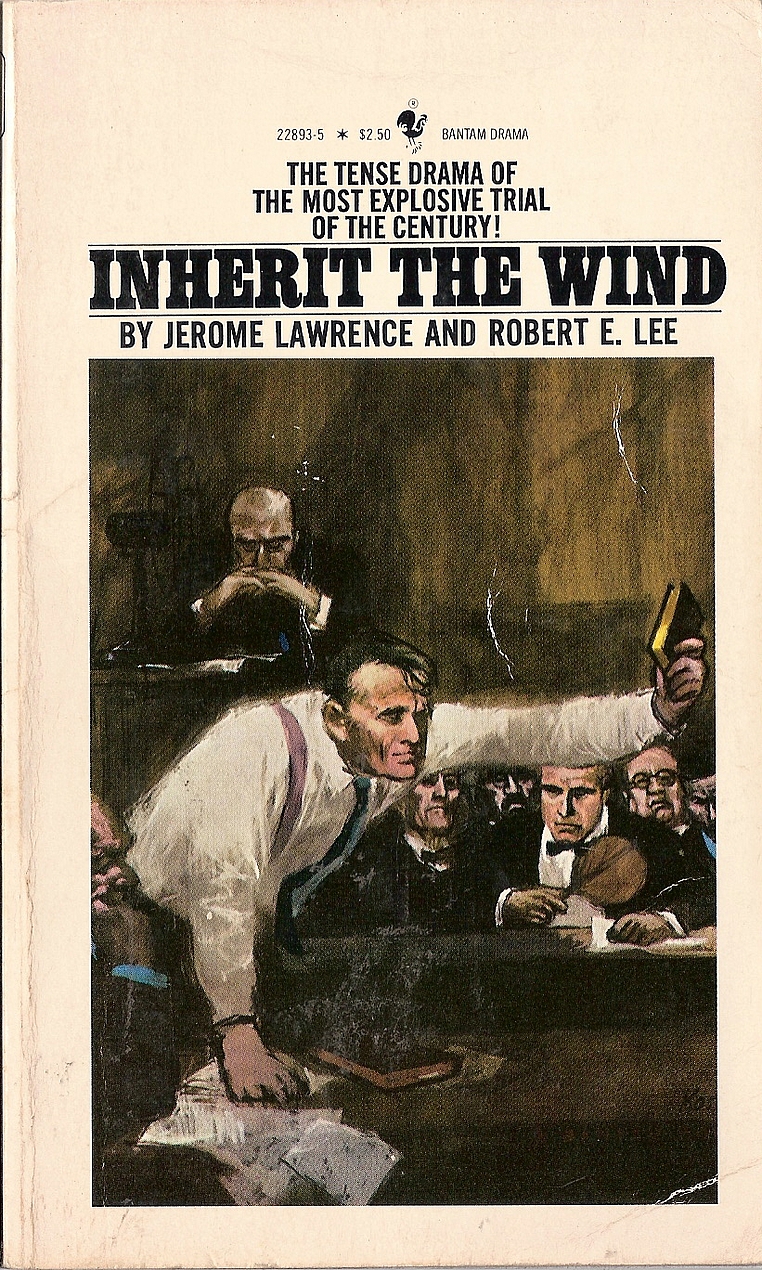Mass market paperback, 115 pages
English language
Published July 1982 by Bantam.

Mass market paperback, 115 pages
English language
Published July 1982 by Bantam.
Inherit the Wind is a fictionalized account of the 1925 Scopes "Monkey" Trial, which resulted in John T. Scopes' conviction for teaching Charles Darwin's theory of evolution to a high school science class, contrary to a Tennessee state law. The role of Matthew Harrison Brady is intended to reflect the personality and beliefs of William Jennings Bryan, while that of Henry Drummond is intended to be similar to that of Clarence Darrow. Bryan and Darrow, formerly close friends, opposed one another at the Scopes trial. The character of E. K. Hornbeck is modeled on that of H. L. Mencken, who covered the trial for The Baltimore Sun, and the character of Bertram Cates corresponds to Scopes. However, the playwrights state in a note at the opening of the play that it is not meant to be a historical account, and there are numerous instances where events were substantially altered or …
Inherit the Wind is a fictionalized account of the 1925 Scopes "Monkey" Trial, which resulted in John T. Scopes' conviction for teaching Charles Darwin's theory of evolution to a high school science class, contrary to a Tennessee state law. The role of Matthew Harrison Brady is intended to reflect the personality and beliefs of William Jennings Bryan, while that of Henry Drummond is intended to be similar to that of Clarence Darrow. Bryan and Darrow, formerly close friends, opposed one another at the Scopes trial. The character of E. K. Hornbeck is modeled on that of H. L. Mencken, who covered the trial for The Baltimore Sun, and the character of Bertram Cates corresponds to Scopes. However, the playwrights state in a note at the opening of the play that it is not meant to be a historical account, and there are numerous instances where events were substantially altered or invented. For instance, the characters of the preacher and his daughter were fictional, the townspeople were not hostile towards those who had come to Dayton for the trial, and Bryan offered to pay Scopes' fine if he was convicted. Bryan did die shortly after the trial, but this occurred five days later, in his sleep.